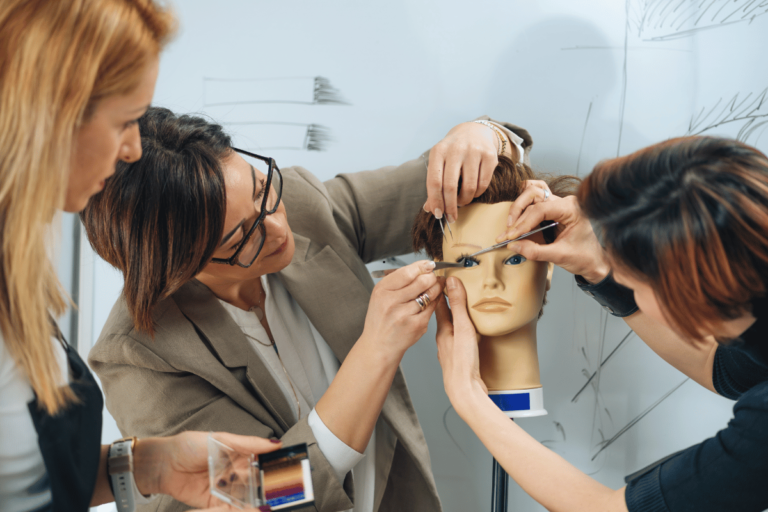Vocational Training in Healthcare
Getting into healthcare? Vocational training programs are your ticket to a rewarding career. These programs are all about quick, career-focused training that gets you job-ready. Let’s break it down: short-term career programs and hands-on internships.
Short-Term Career Programs
Vocational courses in healthcare are like a fast track to specialized skills. Think paramedical studies, emergency medical technician, cardiac care, lab technician, and more.
The beauty of these short-term programs is their laser focus. You get a curriculum that’s all about your chosen field. Take Concorde Career Colleges, for example. Their healthcare diploma programs can get you skilled up in just a few months, ready to jump into the workforce.
Hands-On Experience and Internships
One of the best parts of vocational training in healthcare? The hands-on experience. These programs often include internships or clinical rotations, where you get to apply what you’ve learned in real healthcare settings. It’s like a sneak peek into your future job.
During internships, you get to see what a day in the life of your chosen field looks like. You work alongside pros, pick up essential skills, and build your confidence. Plus, you start making connections in the industry. This real-world experience is gold when it comes to landing a job.
Vocational training in healthcare is all about practical skills. It gives you the experience you need to shine in your career. The hands-on learning approach is what sets vocational training apart, prepping you for the real deal. And let’s not forget, vocational education is usually easier on the wallet compared to advanced degrees. It’s a smart choice if you want to gain practical skills without drowning in student debt.
Next up, we’ll look at the perks of vocational healthcare training, like specialty certification and industry-relevant practical training.
Why Vocational Healthcare Training Rocks
Thinking about a career in healthcare? Vocational training might just be your golden ticket. Let’s break down two major perks: getting certified in a specialty and hands-on, real-world training.
Specialty Certification
Vocational healthcare programs, like those at Concorde Career Colleges, let you snag specialty certifications. These certifications aren’t just fancy pieces of paper—they prove you’ve got the skills and know-how to back up your training, making you a hot commodity in the job market.
Specialty certifications show employers that you’re not just any candidate; you’re someone with specific expertise. This can be a game-changer, especially when job hunting in a crowded field. Employers love seeing these credentials because they know it means you can hit the ground running.
Getting certified can set you apart from the pack, boosting your chances of landing that dream job. Plus, it’s not just about getting hired—these certifications can also help you climb the career ladder faster.
Real-World Training
Good vocational programs don’t just teach you theory—they throw you into the deep end with practical, hands-on training. Places like Concorde Career Colleges make sure you get to work with the same equipment you’ll use on the job.
This kind of training is like a dress rehearsal for your career. You get to practice real-life scenarios, which helps you think on your feet and solve problems like a pro. By the time you graduate, you’ll be ready to handle whatever the job throws at you.
Employers love candidates who have this kind of practical experience. It shows you can take what you’ve learned in the classroom and apply it in the real world. Plus, vocational programs often work with industry experts to keep their training up-to-date (Skills Australia Institute). This means you’re learning the skills that are in demand right now.
So, if you’re looking to boost your career prospects and make a real impact in healthcare, vocational training is a smart move. Whether you’re just starting out or looking to move up, these programs give you the skills and credentials you need to succeed.
Career Opportunities and Advancements
Vocational training is gaining traction, especially in healthcare, opening doors to exciting career paths. Let’s break down the industry’s growth, job market, wages, and job outlook for those diving into healthcare with vocational training.
Industry Growth and Job Market
The healthcare sector is booming, and it’s not slowing down anytime soon. According to the Bureau of Labor Statistics (BLS), jobs in healthcare are expected to grow much faster than the average for all occupations from 2022 to 2032. Why? An aging population, tech advances, and better access to healthcare services are key drivers.
This growth means a bustling job market. Each year, around 1.8 million job openings are projected in healthcare due to new positions and the need to replace folks leaving their roles. So, if you’ve got vocational training in healthcare, you’re looking at a stable and rewarding career.
Median Wages and Job Outlook
Money talks, right? Healthcare pros with vocational training often see competitive paychecks. In May 2023, the median annual wage for healthcare practitioners and technical occupations was $80,820, which is pretty sweet compared to the median for all jobs. On the flip side, healthcare support roles had a median annual wage of $36,140 (BLS).
The job outlook? It’s looking good. Take medical assistants, for example. Their employment is expected to grow 18% from 2020 to 2030, way faster than average. This spike is thanks to the aging baby-boom generation needing more preventive care. Phlebotomists are also in demand, with a projected 22% growth from 2020 to 2030, driven by the need for bloodwork in various healthcare settings.
These numbers show a bright future for those with vocational training in healthcare. By getting the right skills and certifications, you can set yourself up for success in this thriving field.
Vocational training in healthcare isn’t just a ticket to a job; it’s a gateway to a fulfilling career. With industry growth, a strong job market, good wages, and a promising outlook for specific roles, vocational training offers a chance to make a real difference in healthcare while climbing the professional ladder.
Specialized Programs and Opportunities
Looking to level up your healthcare career? There are some cool programs out there that can help you do just that. Let’s talk about two big ones: vocational training abroad and the nitty-gritty of language requirements and training duration.
Vocational Training Abroad
Ever thought about packing your bags and learning healthcare in a different country? It’s a game-changer. You get to see how other places do things and pick up some new tricks along the way.
Take this for example: there are around 196 universities worldwide offering vocational health and medicine courses. That’s a lot of chances to dive into different specialties and get a global edge. Countries like Australia and Germany are big on this.
In Australia, vocational training isn’t just about healthcare. It covers trades, hospitality, IT, and more. You can get certificates and advanced diplomas that give you hands-on skills.
Germany’s got its own thing going on, especially with nursing. They’re dealing with an aging population and tech advances, so they need skilled nurses. Programs like “Training partnerships from Latin America (APAL)” and the “Triple Win program” help folks from different countries train in Germany, complete with language support and integration help (Make it in Germany).
Language Requirements and Training Duration
So, you’re thinking about training abroad? Don’t forget about the language. You gotta be able to understand and be understood.
In Germany, for example, becoming a clinical nurse specialist takes three years. The first two years are general nursing, and the last year you can specialize in long-term care, pediatric nursing, or stick with general nursing. You’ll learn about everything from patient care to the latest in medical tech (Make it in Germany).
Language support is usually part of the deal, helping you get up to speed so you can hit the ground running. Germany, for instance, has programs that offer language training and help you settle in.
Before you jump in, do your homework. Know what the language requirements are and how long the training will take. That way, you’ll be ready to make the most of it.
By checking out these specialized programs and understanding what you need language-wise and time-wise, you can open up some pretty awesome career paths in healthcare. Plus, you’ll be making a difference on a global scale.


